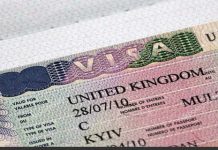Working while studying in foreign schools is a great way to gain work experience and acquire social, academic and language skills.
It is also an effective way for most international students to ease their financial burden of studying abroad and gaining international exposure.
Apart from providing an extra source of income, a part-time job while studying will give you a competitive edge when searching for full-time employment as a graduate.
Note that if you work when you are not allowed to, you will be in breach of your visa conditions and you may be deported.
If you are interested in studying and working in a foreign country, here are some countries that grant permits to students to work while studying as well as criteria students need to meet.
Canada
The ability to work while studying in one of the many advantages of studying in Canada. Learn more about the requirements for working with a Canadian student visa.
- International students in Canada with a study permit who are enrolled full-time in a Designated Learning Institution (DLI), can work off campus without a work permit.
- They are also allowed to work for any employer in any occupation anywhere in Canada.
- International students can also work on campus if there are opportunities to work for a faculty member as a research assistant, for yourself or for a student organisation
- International students will need to obtain a Social Insurance Number (SIN) using their study permit before they can be allowed to work while studying in Canada
- You cannot work in Canada if your study programme will be completed in less than six months
- You will not be allowed to work in Canada until you start your study programme
United States
Once your application to study in an American university has been accepted, you will be able to study in the US after obtaining your F1 student visa.
However, international students are allowed to work in the United States, but only under certain conditions. They are:
- You can work on-campus for up to 20 hours per week when school is in session and full-time (40 hours per week) during school break periods
- International students with F1 visa are allowed to work off-campus in optional practical training (OPT) status both during and after completion of their degree
- You can apply for OPT after being enrolled for at least 9 months, but you cannot begin employment until you receive your Employment Authorization Document (EAD)
- Off-campus employment is only available to international students who have completed at least one full academic year of their programme
- You can apply for Curricular Practical Training (CPT), which is an off-campus employment option for F1 students when the practical training is part of your curriculum
- International students suffering “severe economic hardship” as defined by USCIS is eligible to work off-campus for up to 20 hours per week while school is in session, and full-time during breaks.
READ ALSO: Student Visa: Top 7 Easiest Countries For Nigerians
United Kingdom
The UK schools accepts up to 500,000 new international students every year, which makes it the one of the most sought-after study destinations, second only to the US.
The rules for working while studying in the UK include:
- International students will be allowed to work up to 20 hours a week during their university term time.
- As defined by the UK Visa and Immigration agency, a week is referred to as a seven-day period starting on a Monday and ending on a Sunday.
- During vacations, an international student in the UK can work full-time provided it is only a work placement.
- The work placement should not be longer than 50 per cent of the total length of the course.
- One may work as a student union sabbatical officer for up to two years.
- Those studying a part-time course will not be allowed to undertake any work in the UK.
On July 1, 2021, the UK government introduced the Graduate route, which provides an opportunity for talented international graduates who have been awarded their degree from a UK university to stay in the UK and work, or look for work, at any skill level for at least 2 years.
Germany
Germany has a reputation for innovation in automation and engineering, and has one of the lowest unemployment rates in Europe.
If you’d like to find part-time work to supplement your income while studying in Germany, there are different conditions you need to meet:
- Students from the Germany, EU, Iceland, Lichtenstein, Norway, or Switzerland) have free access to the German job market and can work for up to 20 hours per week while studying.
- International students from outside the EU/EEA can study and work for a total of 120 full days or 240 half days per year.
- Students who are working in Germany can earn up to €450 (~US$491) per month tax-free.
- If you earn more than this, you will receive an income tax number and have automatic tax deductions from your salary.
- If you take a job as a student assistant or research assistant at your university, this is usually not counted in your limit.
- Note that non-EU students are not permitted to work in a self-employed or freelance capacity.
- Some employers may withhold income tax despite the low income, but you can reclaim this after submitting your income tax statement.
- Your eligibility for finding work will improve if you have a good knowledge of the German language and/or have completed an internship during your studies.
READ ALSO: Check Out Nigeria’s Amazing Top 7 Female Bank Managing Director/CEO
Australia
Australia is a great place to work as an international student and to earn extra income. Here are basic requirements:
- You can work up to 40 hours every two weeks while you are studying, and unlimited hours during holiday breaks.
- You will get at least a minimum rate of pay per hour no matter what job you do
- Students with existing qualifications or work experience may be able to find part-time work in the field of their choice
- International students need to obtain a Tax File Number (TFN) from the Australian Taxation Office before they are permitted to work
- International students are protected by basic employment rights.
New Zealand
There are opportunities to work while studying in New Zealand but there are rules to follow. They are:
- If you are allowed to work, your work rights will be recorded in your eVisa or the visa label in your passport, or explained to you in a letter.
- Your visa conditions will allow you to work up to 20 hours a week if you are doing a full-time course, during breaks, New Year and Christmas holidays
- Students enrolled in Masters by research or doctoral degree programme awarded by a New Zealand tertiary institution, are permitted to work without restriction on number of hours
- International students are not allowed to be self-employed.
- You must work for an employer and have an employment agreement.
Poland
You can meet your living expenses while studying in Poland by following these simply guidelines.
- International students are permitted to work for a period of 20 hours each week when on school sessions and full time when on school breaks.
- International students must demonstrate that they possess sufficient means to cover the costs of living in Poland
- Employers are required to check for a valid residence permit before employing foreign students













